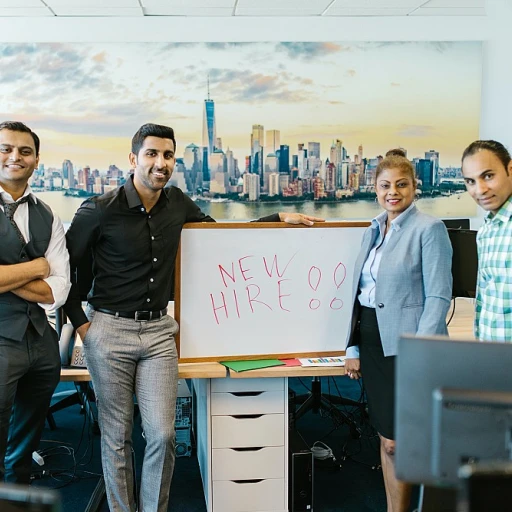
Understanding Employer Rights
Exploring Employer Entitlements
The question of whether an employer can request a doctor's note for a single day of sick leave hinges on several factors. Primarily, it revolves around the concept of employer entitlements and how they interact with established leave laws. Generally, employers have certain rights to verify an employee's condition and ascertain that the requested time off is warranted. The Family and Medical Leave Act (FMLA) provides a framework that allows employees to take medical leave; however, employers may still require a medical certification to substantiate requests for FMLA leave or specific health-related concerns.
- Paid Sick Leave: As of the latest trends, many states have mandated paid sick leave, allowing employees to take necessary time off without fear of unpaid days. Regardless of whether a note is requested, transparency in communication can benefit the workplace environment.
- Employer Requests: Employers can require documentation to support absences, but the demands must be reasonable, following relevant labor laws. Regular review of internal policies can ensure compliance with legal standards and mitigate unnecessary disputes.
- Medical Documentation: While some policies allow for a doctor's note after three consecutive days of absence, some organizations might request verification even for a single day. This requirement is often dependent on the nature of the employee’s duties or company size. For more insights, you may want to explore background check trends linked to these rights.
Employers must strive for a balance that respects both employee privacy and organizational needs. As workplace dynamics evolve, understanding these aspects can aid in maintaining harmony at work.
Employee Privacy Concerns
Balancing Privacy and Compliance
Employers often face a delicate balance when requesting a doctor's note to validate a sick leave. On one hand, the employer's right to manage their workforce is essential for operational productivity. On the other, employees hold legitimate privacy concerns that must be respected.
Employee privacy is primarily protected through various employment laws. For instance, the Family and Medical Leave Act (FMLA) allows employees to take leave for serious health conditions without fear of personal information being mishandled. However, under certain conditions, employers may request medical certification to verify the necessity of the leave. This process involves obtaining a doctor note or certification from a healthcare provider.
While requesting documentation, it's crucial for employers to comply with privacy laws, ensuring that any medical information remains confidential and only used for intended purposes. The Health Insurance Portability and Accountability Act (HIPAA) further restricts how employers handle sensitive health information.
Employees too play a critical role in this dynamic. They are responsible for providing the necessary documentation as specified by their employer within reasonable timelines. By being transparent, employees help maintain trust and clarity in their professional relationships, alleviating concerns on both sides.
The intersection of employee privacy and employer rights necessitates a nuanced approach, where both parties remain informed and responsive to lawful obligations. Understanding and adhering to these legal frameworks foster a healthier workplace environment for all involved.
Impact on Workplace Culture
Workplace Dynamics and Employee Morale
The relationship between an employer and employee can greatly influence the overall culture within a workplace, and this is pivotal when it comes to managing employee absences. Employers requesting a doctor's note for a single day off might feel justified due to operational needs, but this practice can also impact how employees perceive their work environment.
When employees feel trusted by their employer, it can lead to a positive atmosphere, enhancing job satisfaction and productivity. On the contrary, excessive scrutiny, such as requiring medical documentation for brief sick leave, might foster resentment, leading to a disengaged workforce. The balance between operational efficiency and employee contentment is a delicate one, shaping the broader workplace culture.
A healthy workplace culture is crucial, and employers should strive to maintain open communication and trust with their teams. Encouraging employees to provide feedback about leave policies and showing a willingness to adapt based on their needs can help in creating a supportive work environment. This approach not only benefits employees but also supports long-term retention and loyalty.
In the context of broader background checks, understanding these dynamics can be as important as the checks themselves, especially when it comes to assessing the implications of requests surrounding medical documentation. Employers must navigate workplace dynamics carefully to foster a positive culture and productive work environment.
Trends in Background Checks
An Examination of Background Check Evolution
The landscape of background checks is continuously evolving, influenced by a variety of factors including legal frameworks, technological advancements, and workplace culture changes. Employers are increasingly aware of the value that thorough background checks provide in making informed hiring decisions. While background checks traditionally focused on an employee's past employment and criminal records, more recent trends indicate an expansion into other areas. For instance, employers are now increasingly interested in checking an employee's health-related leaves, which may include understanding if an employee's leave request—be it for just a single day or several consecutive days—falls under a serious health condition or FMLA leave. In parallel, there has been a noticeable trend towards respecting employee privacy concerns. This shift is partially driven by legal considerations that protect employee rights, ensuring that personal health details, such as medical notes and the conditions for which they are provided, are not unjustly scrutinized.Integrating Health Checks into Employment Policies
Another significant change is the emerging practice of integrating health-related checks directly into employment policies. Increasingly, employers are embedding health and leave law considerations into their hiring practices. This involves asking employees to provide documentation, such as a doctor's note when they request medical leave, to ensure that the leave is legitimate and follows the employer's policy. By requiring such documentation, employers aim to maintain a balanced workplace culture where trust is fostered, and abuse of leave policies is minimized. This practice, however, needs to be aligned with relevant legal guidelines to avoid infringing on employee rights.Conclusion on Background Check Trends
Overall, the trend in background checks is moving towards a more detailed scrutiny that includes health and medical leave verification. Employers strive to align these practices with existing legal frameworks and employee rights to maintain ethical standards in workplace culture.Legal Challenges and Considerations
Navigating the Legal Terrain for Leave Requests
Employers seeking to balance operational needs and employee rights must tread carefully when it comes to legal challenges and considerations. In particular, issues arise around paid sick leave, the Family and Medical Leave Act (FMLA), and other pertinent leave laws.- Leave Laws and Employee Rights: Federal and state laws often dictate circumstances under which an employer may request a doctor's note for medical leave. For instance, under FMLA, eligible employees are entitled to leave for serious health conditions, but the employer may require a medical certification from a health care provider to support the need for leave.
- Paid and Unpaid Leave: While paid sick leave laws vary by state and locality, employers generally must provide leave as dictated by these laws. The nuances of whether leave is paid or unpaid can impact how leave requests are processed.
- Conditions for Requests: Employers must ensure that any requests for medical documentation, such as a doctor's note, comply with applicable laws. For example, under FMLA, after three consecutive days of sick leave, employers might be justified in requesting a formal medical note.
- Potential Legal Obligations: Employer obligations can range from providing reasonable accommodations to protecting employee privacy under laws like the Americans with Disabilities Act (ADA).
Best Practices for Employers
Implementing Effective Policies on Doctor's Notes
Creating clear policies around the request and provision of a doctor's note for sick leave is essential for fostering a transparent and supportive work environment.- Clear Communication: Employers should communicate expectations regarding the submission of a doctor’s note for sick leave. This includes when it is required, such as after consecutive days off due to serious health conditions.
- Consistency: Apply policies consistently across all employees to avoid potential claims of discrimination or bias. This ensures all employees understand why and when a doctor's note is necessary.
- Employee Privacy: Consider the privacy concerns of employees while requesting medical documentation. Limits must be placed on how much personal health information is disclosed, respecting employee privacy while complying with health care and FMLA regulations.
- Flexibility: Be flexible where possible. For example, allow some unpaid and paid leaves without requiring medical certification or a doctor's note for minor illnesses less than three consecutive days.
- Training Managers: Provide training for management on how to handle requests for doctor's notes sensitively, in line with leave laws and employees' rights. This minimizes the risk of mishandling situations, promoting a healthier workplace culture.
- Monitoring Trends: Keeping an eye on trends in background checks and legislative developments can be beneficial. This includes understanding the evolving landscape of employees' rights and health care regulations that impact leaves.













